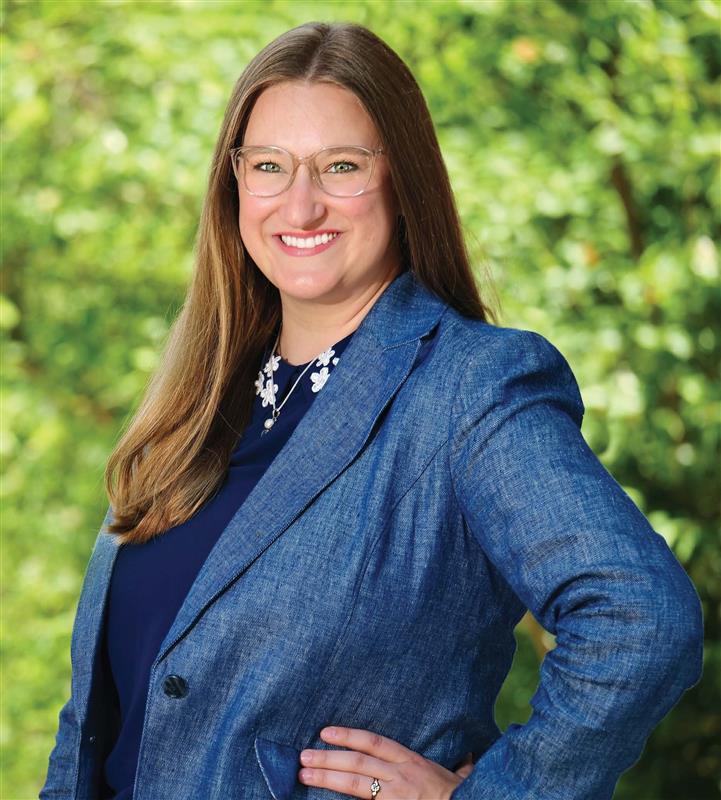
Applied and Computational Math Program Overview
Johns Hopkins Engineering for Professionals online applied and computational mathematics master’s is one of the premier graduate degree options in our top-ranked online engineering master’s program and a leading computational mathematics master’s program in the industry. The advanced-level curriculum teaches students the key steps to incorporate design and mathematical algorithms into modern technologies.
Choose from highly relevant courses like Statistical Methods and Data Analysis, Real Analysis, and Matrix Theory to support your subject-matter interests. Whether you work to develop prototypes in manufacturing or create models to predict long-term climate change, the coursework emphasizes applied and theoretical aspects of the field, so you can:
- Gain high demand skills to advance in industries that rely on mathematical modeling and computational science
- Solve probability problems, including finding properties of distribution functions
- Apply statistical software confidently
- Interpret and solve simple regression models
- Understand the distinction between axioms, definitions, and theorems
- Learn on your terms and select a flexible course schedule in a format that works best for you
Master’s Degree Focus Areas
A focus area can be selected but is not required for the computational mathematics master’s.
- Applied Analysis: Bring together mathematical topics such as differential equations, dynamical systems, approximation theory, number theory, topology, and Fourier analysis.
- Information Technology and Computation: Apply a range of tools—such as neural networks, cryptography, and data mining—to solve business and organizational problems.
- Operations Research: Employ techniques such as optimization and game theory across the employment spectrum in industries such as education, transportation, and public services.
- Probability and Statistics: Measure randomness and how to collect, analyze, and interpret numerical data in such a way as to obtain useful information.
- Simulation and Modeling: Learn to approximate a process or system over time with commonly used analytical tools like Monte Carlo Methods, Markov Chains, and queuing theory.
FOCUS AREA REQUIREMENTS
Programs
We offer three Applied and Computational Mathematics degree options; you can earn a Master of Science in Applied and Computational Mathematics, a Post-Master’s Certificate, or a Graduate Certificate.
Applied and Computational Mathematics Courses
Get details about course requirements, prerequisites, focus areas, and electives offered within the program. All courses are taught by subject-matter experts who are executing the technologies and techniques they teach.
Selected undergraduate-level courses are also offered to provide mathematical background for the program. These 100- and 200-level courses are not for graduate credit. Some students may find one or more of these courses useful as a refresher or to fill gaps in their prior education.
Student Thesis and Research Papers/Projects
Learn about the requirements for completing research or a thesis in Applied and Computational Mathematics.
Self-assessment Math Placement Exams
Assessment examinations are available for Precalculus, Calculus 1, Calculus 2, and Calculus 3/Multivariable Calculus. Each assessment exam is an advisory tool to help you and your academic advisor gauge your preparedness for mathematics at a proper level here at EP. The exam is not a means to “pass out” of a particular course, and a waiver will not be granted solely based on an exam score.
Program Contacts
-
James Spall
Program Chair Applied and Computational Mathematics, Program Chair Industrial and Operations Engineering Email:james.spall@jhuapl.edu
Email:james.spall@jhuapl.edu
-
Email:aharwel3@jhu.edu
-
 Email:hayley.beach@jhuapl.edu
Email:hayley.beach@jhuapl.edu
Tuition and Fees
Did you know that 78 percent of our enrolled students’ tuition is covered by employer contribution programs? Find out more about the cost of tuition for prerequisite and program courses and the Dean’s Fellowship.
Why Hopkins?
Build on your applied and computational mathematics degree by engaging with all the rest Johns Hopkins has to offer.

Expert Faculty - Study with faculty who are practicing scientists and notable professionals with corporations and government entities, including the Johns Hopkins Applied Physics Lab, NASA, Raytheon, and the U.S. Department of Defense. Exceptional one-on-one mentoring sets you on a course to be a confident, knowledgeable leader. Learn More

Beyond Rankings: We Help You Fulfill Your Vision - We are proud to be ranked among the top online graduate engineering schools by U.S. News & World Report. But we’re about more than just numbers and rankings—we’re focused on making sure you flourish as a learner and engineer. Learn More

Network and Connect - Your knowledge is stronger with a network. In the applied and computational mathematics program, you will make career-advancing connections with accomplished scientists and engineers who represent a variety of disciplines across many industries. Learn More
“I enjoyed the flexibility of attending part-time, the personableness of the instructors in the program, and the content of the courses. ”
Applied and Computational Mathematics FAQs
Yes. If we are otherwise willing to accept the student, we will determine which prerequisites are still needed as part of the review process. You will then be admitted provisionally until those courses have been successfully completed.
Generally speaking, computation mathematics refers to the mathematics that fuels a computer’s ability to solve complex equations, while computer science refers to the science that goes into building and innovating the computer itself. A computer science master’s program will focus more on the building and operations of computers while a computational mathematics master’s program leans more into the mathematics that computers use.
Applied and computational mathematics jobs can range from genetic and healthcare research to software engineering and machine learning and over into statistics or actuarial science. You can also pursue careers in industries like medical research, international banking, and software development—just to name a few.
Academic Calendar
Find out when registration opens, classes start, transcript deadlines and more. Applications are accepted year-round, so you can apply any time.


